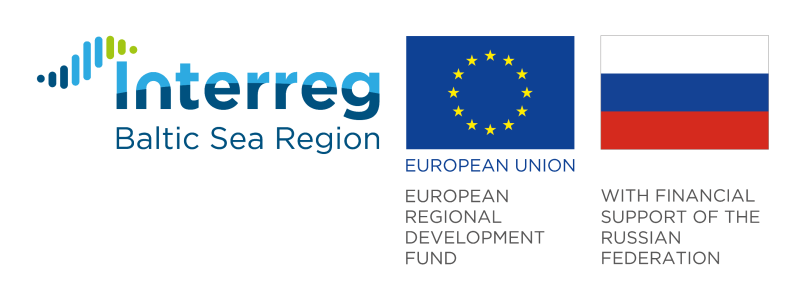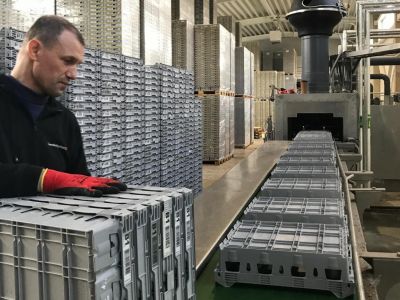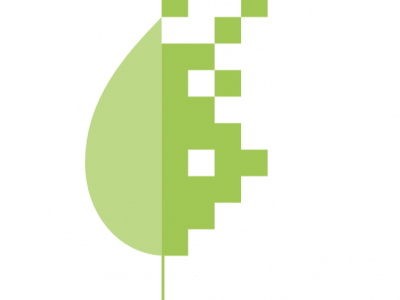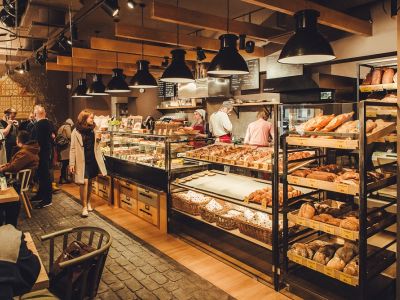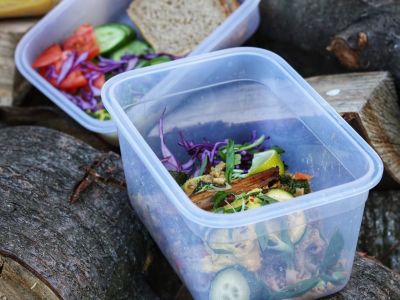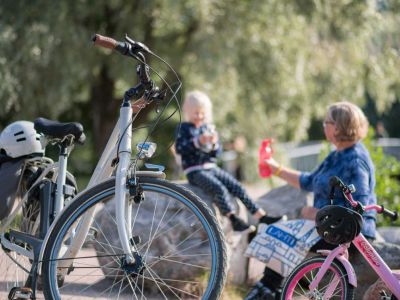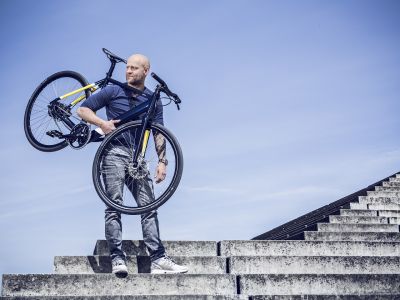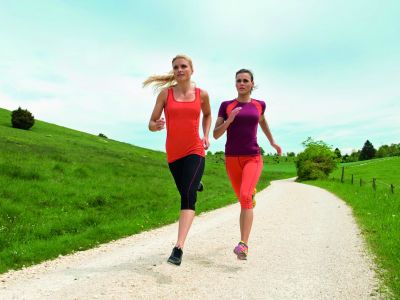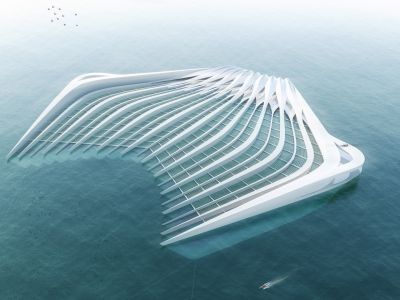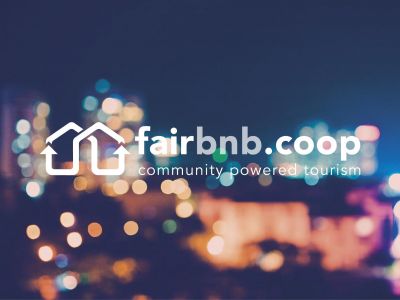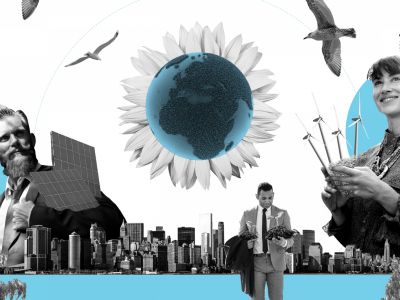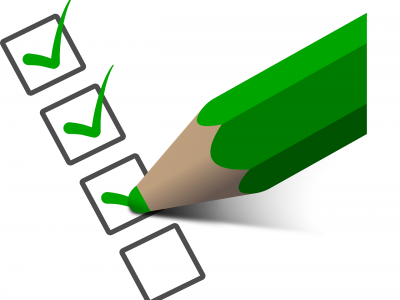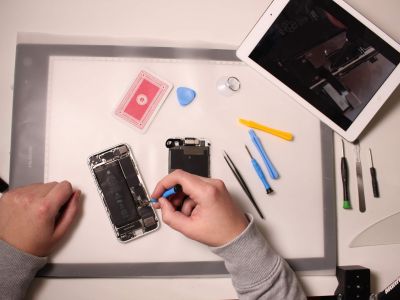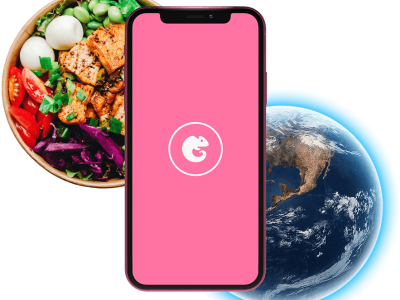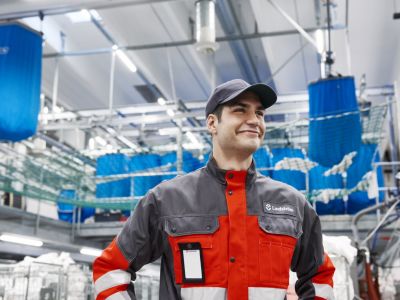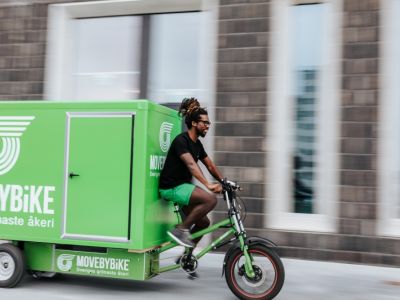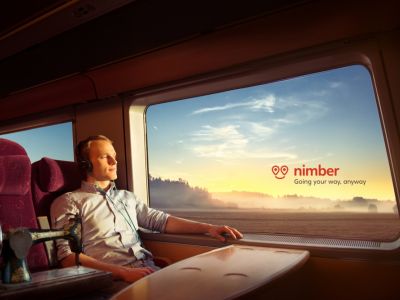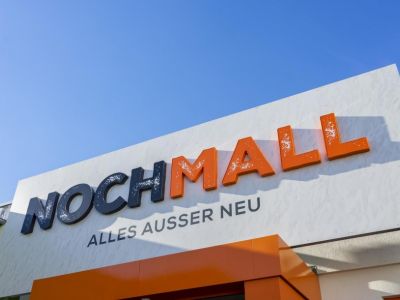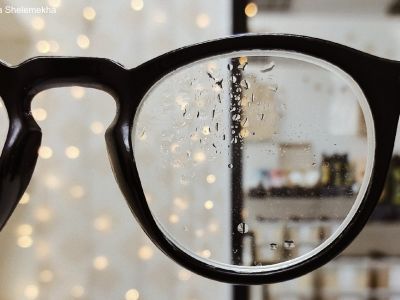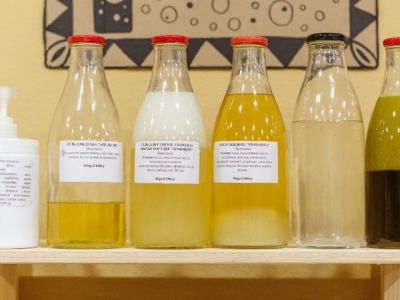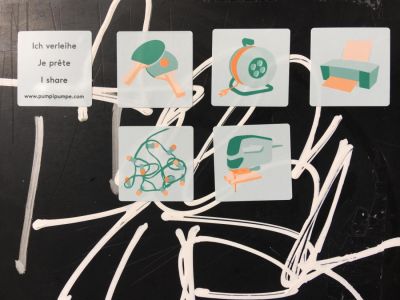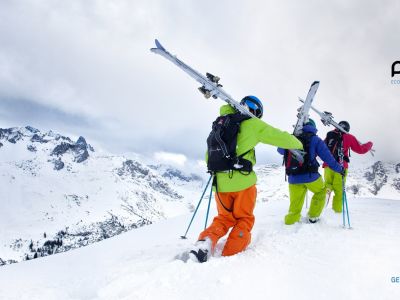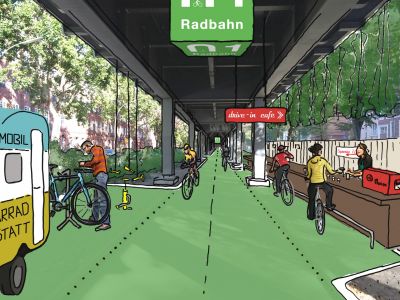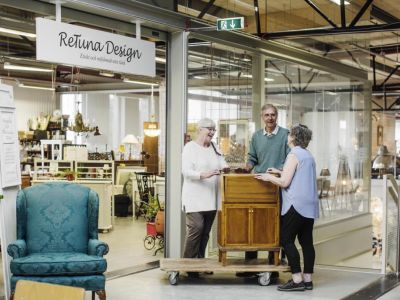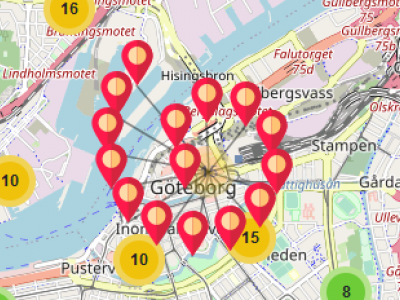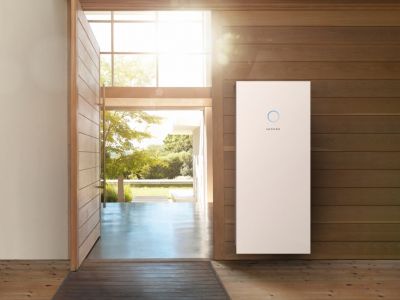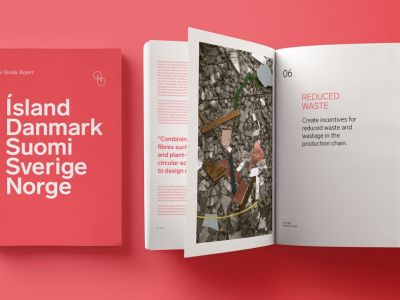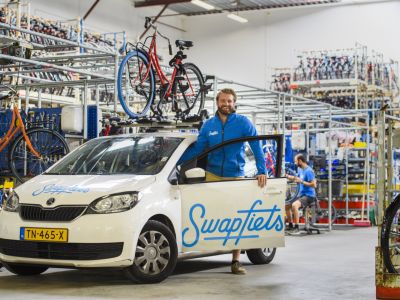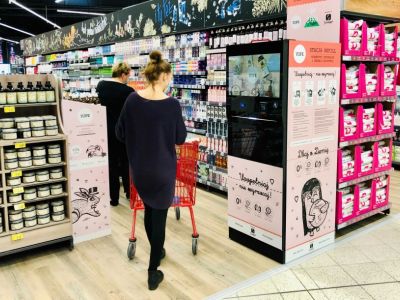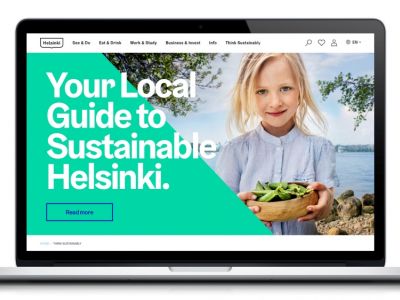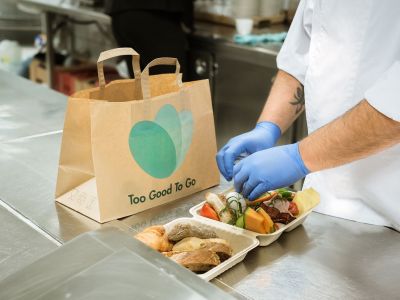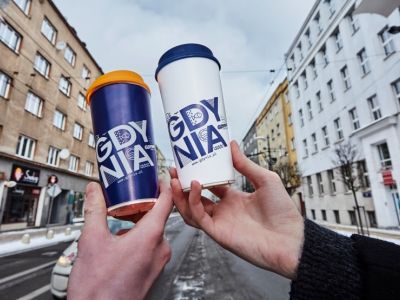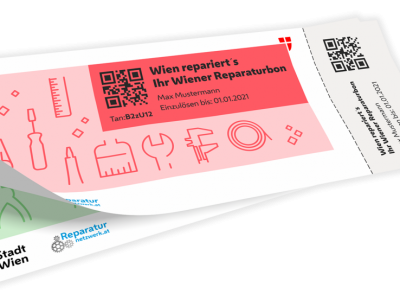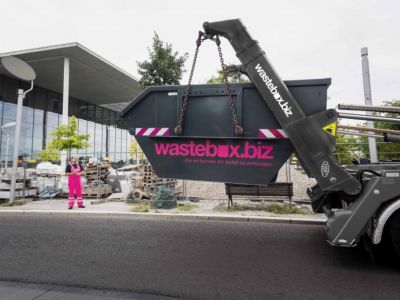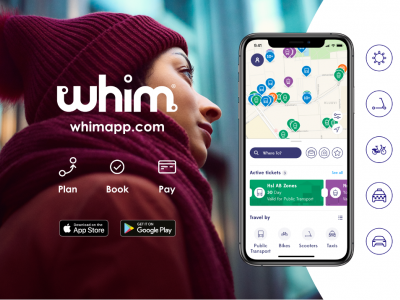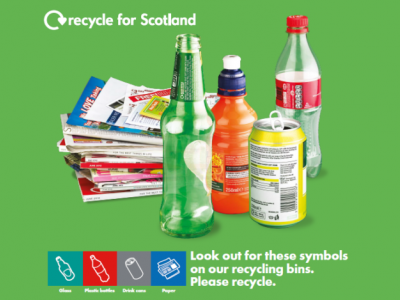![]() Service
Service ![]() Germany
Germany ![]() Enabling & Empowering
Enabling & Empowering
![]() Go To Website
Go To Website
Picture on top: Solarkiosk | German Ecodesign Award
The Berlin based company SOLARKIOSK has developed kiosks that run on solar power. In many parts of the world, it can be life-changing to have access to these units. It’s like throwing a stone into water, says the inventor, it keeps on drawing larger circles.
It’s about the seemingly small needs – charging a phone, listening to the radio, cooling medicine. These things tend to be taken for granted from a European perspective – things that are available and not to worry about. But this isn’t generally the case in other continents or countries.
According to the World Bank, 1.3 billion people worldwide do not have access to electricity.
There are rural areas in many countries in Africa that have limited access to electricity, something that can be seen as problematic from an economic viewpoint. Andreas Spieß, who cofounded two companies in Africa, has made the experience that a lot of projects fail to progress due to the inaccessibility of electricity. Which is why in reverse, he concluded that much can be made possible by making electricity accessible to larger parts of communities.
... “I thought that there must be a way of supplying people with electricity, even in regions with little or no infrastructure and difficult access. A robust, modular and sustainable solar-powered unit could provide this electricity.” ...
Architects Lars Krückeberg, Wolfram Putz and Thomas Willemeit designed ...
... the small miniature power station, that could provide the basis for people to establish a means of securing a livelihood for themselves.
... “Things only change when people get the chance to build up an economic livelihood – for example a small barber shop, a sewing shop or a repair shop. Our solar kiosk makes it possible to offer services or to use the internet for learning and communicating online.”..
The units are equipped with solar technology which is produced in Germany. The units are moveable and can be installed using materials found on site. The buildings are then set up with the local people. The Solarkiosk can be used in various ways next to the accustomed usage of a kiosk. It may provide features of a school and medical care, or it can serve as a covered market place or perhaps a beauty salon. It depends on the size of the base surface as to how many solar panels can be installed. Each kiosk providing electricity should ideally be accessible to a minimum of 7,500 people.
The function of a solar kiosk goes beyond charging electrical appliances. It can be used to cool medicines, access the internet, print, fax and scan.
All of this can be covered by Andreas Spieß’ unit. He came up with the idea in 2008 while working in the field of solar technology with Ethiopian partners. SOLARKIOSK AG was founded in 2011 and throughout the years has had an effect on several levels. The kiosk operators are trained franchise partners. There is close cooperation with the local communities and solar kiosks are now accessible to around five million people. 800 jobs have been created on the African continent. According to the company, each 2-kilowatt HUBB saves 9.070 tonnes of carbon dioxide annually. Thus the solar kiosk often provides the cleanest energy within the area.
 picture: Solarkiosk | German Ecodesign Award
picture: Solarkiosk | German Ecodesign Award
To come back to the aforementioned analogy. Andreas Spieß says:
... “It's like throwing a stone into water. It keeps drawing larger circles. 80 percent of the people who make a living with the help of the solar kiosk are women. Then again, they create work for others. Right from the start, we didn't want to merely provide the consumption of something. We wanted to provide a basis for creation, which is where the future lies.”...
In 2018 SOLARKIOSK AG and Siemens founded a partnership. Together, they want to use microgrid solutions to supply electricity to more and more rural areas. There has been a cooperation with “Ekocenter”, founded by Coca Cola, since 2013. “Ekocenters” range somewhere from corner shops to neighbourhood centres. Again, the majority of these centres are run by women. These buildings, too, need electricity. In November 2018, the first market composed of solar kiosks was opened in Tanzania. In the same year, five solar-powered micro-clinics were built in the Rohinga refugee camp in Bangladesh.
... “We have decided to grow our project through cooperation with large companies. We are a privately owned company and cooperation allows for a better scaling. I also think we need to make proposals to companies on how they can act in an entrepreneurial and ecological way.”...
This worked out well in this case – SOLARKIOSK AG is a true success.
Shortly after the company's story began, the inventors of the solar kiosk were awarded the German Ecodesign Award in 2013.
... “We have won many prizes. We received the Ecodesign Award at a time when we were still building the company and investing. It was very motivating and a prize like that is encouraging, almost like a pat on the back. And the prize comes from an institution that checks the background stories and doesn't just hand out prizes like that. This kind of prize is a real validation of our concept.” ...
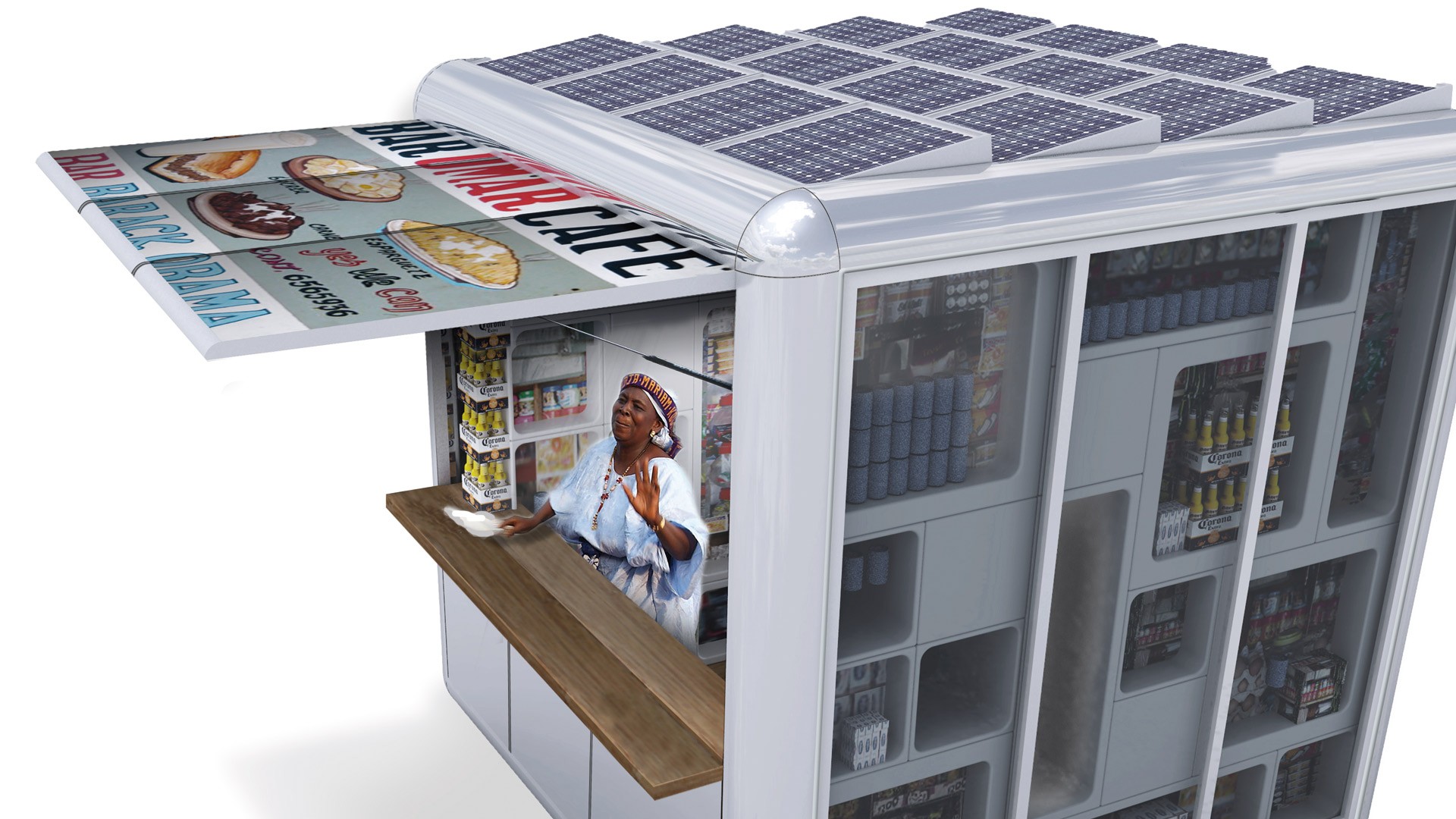
Picture: Solarkiosk | German Ecodesign Award
WHO AND WHAT?
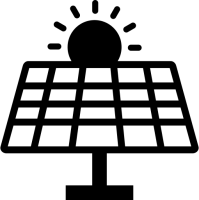
Andreas Spieß founded SOLARKIOSK in Berlin in 2011 together with Lars Krückeberg, having previously operated a development company for solar technology with Ethiopian partners. In 2015, the company was converted into an unlisted public limited company.
THE INITIAL PROBLEM
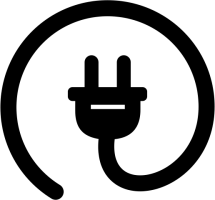
More than 1.3 billion people worldwide have no access to electricity, around 800 million of them in African countries, where many people have to walk for hours and pay exorbitant prices to charge electrical devices.
THE MOTTO
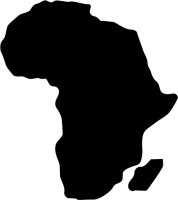
Good design is not a first world privilege.
THE IDEA
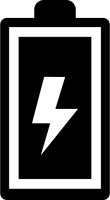
Providing cheap and clean energy for the poorest of the poor, promoting local entrepreneurship, creating local jobs, providing access to education. The solar kiosk enables charging of equipment, cooling of medicines, internet access. The modular construction system allows flexible space concepts.
THE BENEFITS
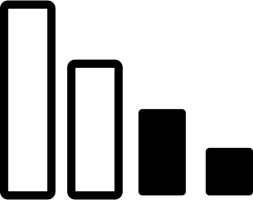
Solar energy is stored in batteries, with each solar kiosk around 7500 people in the area have access to clean energy, local skills are built up, franchise partners build up an economic existence.
THE HISTORY

Andreas Spieß is a lawyer and has worked a lot for start-up companies, especially in the field of renewable energies. In 2008 he founded a production company for solar products with Ethiopian partners.
THE AWARD
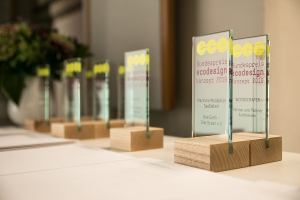
In 2013, SOLARKIOSK AG receives the German Ecodesign Award in the category service. The jury stated: “The Solarkiosk convinces as an overall concept and in its creative realisation. It gives the local population access to energy via a solar energy-based power supply. Furthermore, it provides a business foundation for small local companies and serves as a social meeting point.”
A FEW NUMBERS
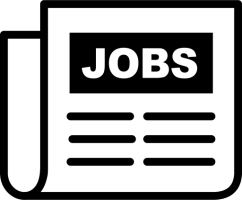
25 employees in Berlin, 80 in African countries, by 2018 about 200 projects in 12 countries, including Ethiopia, Ghana, Cambodia, Kenya, Rwanda, Zambia, Tanzania, Vietnam. Solar kiosks provide around 5 million people with clean electricity, around 800 jobs have been created in African countries.
THE FUTURE
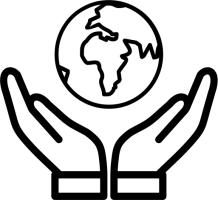
Providing access to clean energy as the key to a better future. Strengthen social entrepreneurship by linking the economy, environmental protection and development cooperation.

